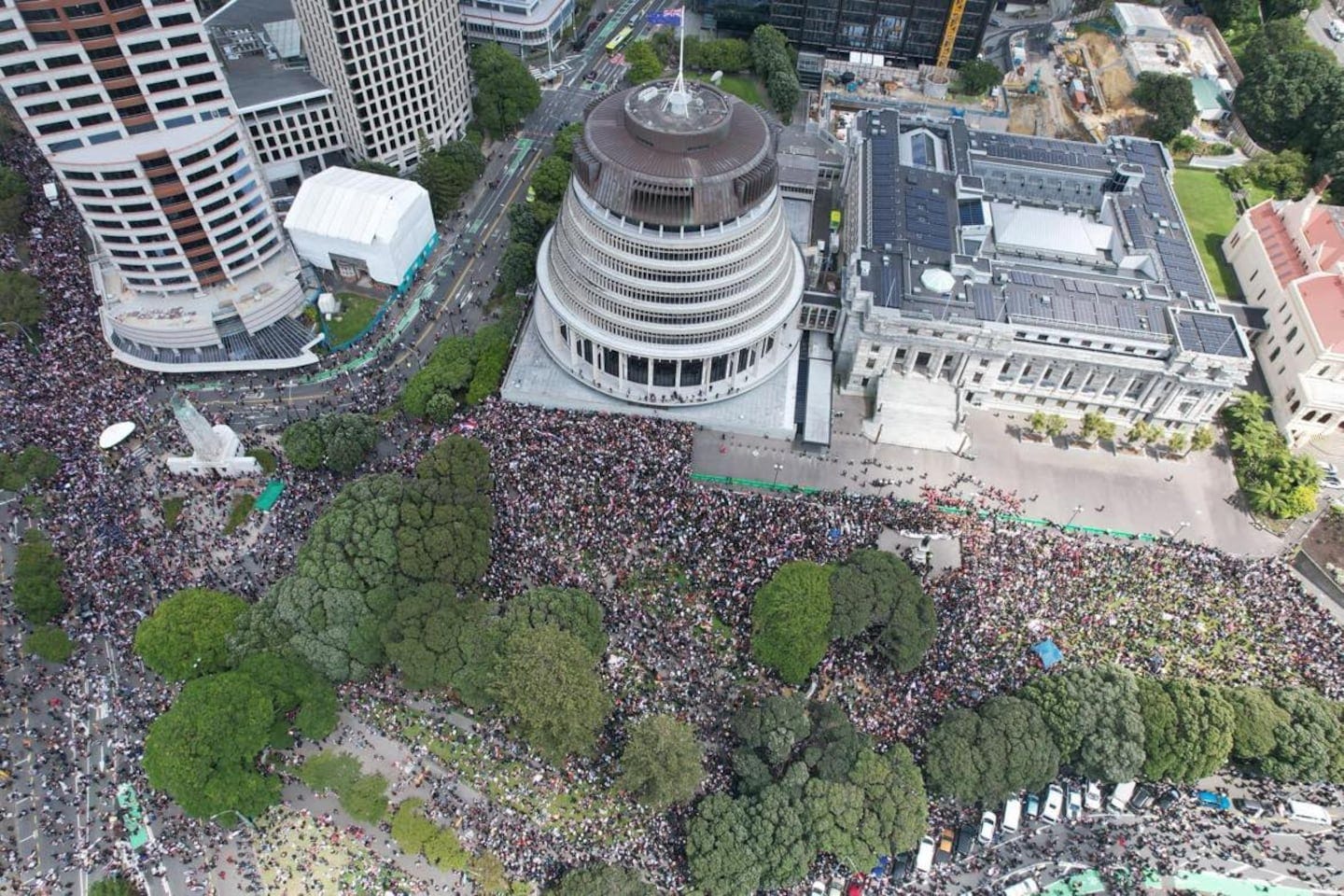By now most of Aotearoa (and a whole lot of the world) have seen the pictures of the hīkoi. I’ve seen estimates ranging from 42,000 to 50,000 people there protesting ACT’s Treaty Principles Bill. From where me and my whānau were sitting/standing at different points of the day, whatever the number was, it was incredible.
It was an incredible display of how important Te Tiriti o Waitangi is to many of us in Aotearoa. Given most of our country’s shallow understanding of Te Tiriti o Waitangi, I think it was also an acknowledgement that different groups sometimes need different treatment to receive the same outcome - and this shouldn’t be controversial. This isn’t a specific to Te Tiriti o Waitangi, but the argument of “everyone should be treated the same” and “Māori get all this special treatment” is used again and again in arguments against the current principles and as a surface-level cry for support for the Bill. But let’s assume we all want everybody to succeed in life. If we thought treating everyone the same means everyone succeeds, we wouldn’t have wheelchair ramps on trains, we wouldn’t have women’s shoe sizes and men’s shoe sizes - why do we need two systems? You would never be asked if you’re allergic to any medication - I’m not, so why should you be? I was reminded on Wednesday night that women who wear seatbelts are 17% more likely to be killed in a car crash than men who are ‘treated’ to the same seatbelts. Crash test dummies were all men until very recently - the shape and size of those dummies has worked great for me, I don’t see why we need to do things differently for anybody else. That’s not a well thought out approach to building things is it?
I think everyone agrees thoughtful discussion and understanding is important when it comes to Te Tiriti o Waitangi. Given we know our history as a country isn’t all roses and Pōhutukawa flowering together in pretty harmony. And I think the size of the hīkoi told us a lot of New Zealanders think the proposed bill is neither thoughtful nor a discussion. While ACT have been downplaying protestors and claiming people who are against the Bill are somehow trying to block a discussion on the Te Tiriti o Waitangi, a Bill is not a discussion. Nor is a very defined set of principles a conversation. It’s a bill based on the ACT party’s values and ideologies. The discussion is the thing that should be had before a Bill (and, has actually been had for decades, by people who mitigated the lack of prescribed education on our constitutional document, by choosing to study it after school).
Looking for the latest Shoebox Christmas and Koha Tree updates?
I’ve spent a bit of time working around Te Tiriti and health care, and at a system level, without principles that ensure our health system thinks about how to prevent more of the horrible health statistics Māori endure, it doesn’t do it - that’s why we have the those outcomes in the first place. I don’t like using deficit based kōrero but sometimes that’s what’s needed. From The Ministry of Health’s Māori Health Trends Report:
Mortality rates in all cardiovascular disease indicators were higher for Māori compared with non-Māori, often more than twice as high.
Māori males and females rheumatic heart disease cases were more than four times as high as those for non-Māori males and females.
Cerebrovascular disease (stroke) rates of hospitalisation rates for Māori females were twice as high as those for non-Māori females.
Māori have remained around 2½ times as likely as non-Māori to be hospitalised for pneumonia over time.
Māori adults aged 25 years and over have higher total-cancer registration and total-cancer mortality rates than non-Māori adults in the same age group over time
Regardless of the causes of these differences, if we want everyone to succeed (in this case, live) - obviously we need to address these issues differently when working with Māori. That might mean different channels for education, it might mean different clinical approaches - that’s outside my area of expertise. But we shouldn’t be saying, we’ve tested them using this crash test dummy that looks like me, so the services should work for you.
The current principles go some way towards making sure we try to correct some of those outcomes. They say things like: as the people designing a health service ‘We will actively protect the health and wellbeing of Māori’ (because we know what happens when we don’t). The new principles say we will treat everyone the same and give nobody special treatment based on ethnicity (…and again, we know what happens when we don’t).
There’s a much bigger kōrero around our history in Aotearoa of ‘treating everyone the same’ and the attempts at assimilation that forced many in my grandparents and parents’ generation to pretend to not be Māori because of the repercussions of not being ‘the same’, but I’ve written about that before, and to be honest, it gets a bit exhausting.
If you’re interested in making a submission against the bill, a lawyer has prepared this template to save you time.
Mauri ora!
Pera




